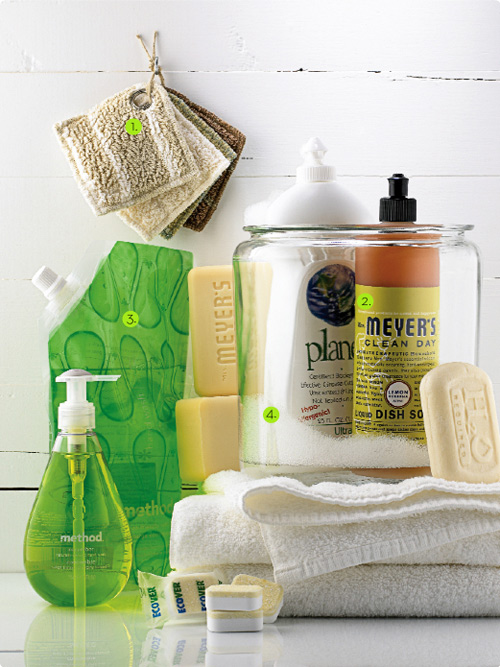Spring Greening: The Materials
Blasting a kitchen with bleach-based cleansers and anti-bacterial soaps may feel squeaky clean, but there are many hazards associated with the use of such harsh agents. Often we buy the same products out of habit, so you may be surprised that most supermarkets now carry entire selections of eco-friendly cleansers. Real soap is made from natural, biodegradable products that are absorbed back into the water system in an earth-friendly way.

(1) Organic cotton and hemp washing rags and towels are made with insecticide-free materials and natural dyes. Use strong, washable dishrags rather than disposable items. Source: Organic cotton washrags and H2O Required soap, Waldenour.
(2) Kitchen cleansers and soaps with eco-friendly properties are found not only in obvious places like Whole Foods Market, but also in bigger supermarket chains and even hardware stores. Planet Dishwashing Liquid, Publix. Sources: Meyer’s Dish Detergent, Whole Foods. Ecover Dishwasher Pellets and Meyer’s soaps, Smith Ace Hardware.
(3) When buying liquid soaps with pump attachments, look for a brand that offers large refills. Buying small plastic containers creates extra waste. Refill bags are better than hard plastic containers because of the energy and compounds used to manufacture the containers. Source: Method liquid soap and refill bag, Target.
(4) Water usage is on everyone’s mind these days. Be sure to think about how you use water when washing the dishes. Don’t turn the water on full force. Fill up a sink with sudsy water rather than letting the water run as you wash each dish. Only run the dishwasher when it is full and packed properly.








